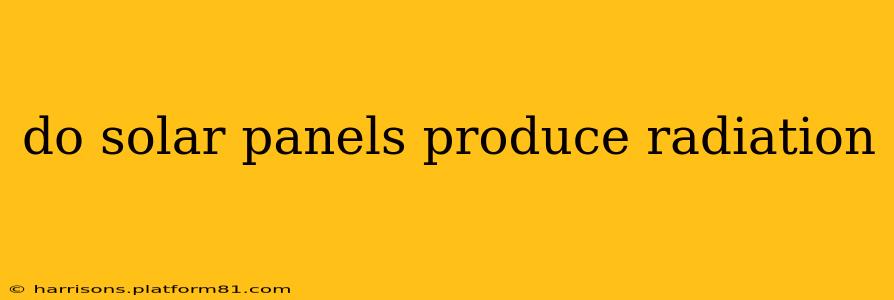Do Solar Panels Produce Radiation? Understanding the Facts
The question of whether solar panels produce radiation is a common one, fueled by understandable concerns about the effects of radiation on human health. The short answer is: solar panels do not produce ionizing radiation, the harmful type that can damage DNA and cells. However, they do produce a different type of radiation, and understanding the difference is key to dispelling any misconceptions.
What Kind of Radiation Do Solar Panels Produce?
Solar panels produce non-ionizing radiation in the form of infrared (IR) radiation and ultraviolet (UV) radiation. These are forms of electromagnetic radiation, but they are significantly less energetic than ionizing radiation, such as X-rays or gamma rays.
-
Infrared (IR) radiation: This is heat. Solar panels absorb sunlight and convert a portion of that energy into electricity. The rest is emitted as heat in the form of infrared radiation. Think of the warmth you feel from a sunny window – that's infrared radiation. This level of IR radiation is generally harmless and similar to the heat produced by other everyday objects.
-
Ultraviolet (UV) radiation: Solar panels can reflect a small amount of the UV radiation they receive from the sun. The amount is minimal, far less than the amount of UV radiation we receive from the sun on a clear day. While prolonged exposure to high levels of UV radiation can be harmful, the amount reflected by solar panels poses no significant risk.
Are Solar Panels Safe?
Yes, solar panels are considered safe. Extensive research and decades of use have shown no evidence of harmful health effects linked to the non-ionizing radiation they produce. The levels of IR and UV radiation are far too low to cause any concern.
What About Electromagnetic Fields (EMFs)?
Another concern sometimes raised is electromagnetic fields (EMFs) produced by solar panels. While solar panels do produce very low levels of EMFs, these are well below levels considered harmful by various health organizations like the World Health Organization (WHO). These EMFs are also similar in magnitude to those produced by many household appliances.
Do solar panels produce radiation that is harmful to humans?
No, the radiation emitted by solar panels is non-ionizing and does not pose a significant health risk. The levels of infrared and ultraviolet radiation are far below levels that would cause harm.
Can solar panels cause cancer?
There's no scientific evidence linking solar panel radiation to cancer or other health problems. The type and level of radiation they produce are not considered carcinogenic.
Are solar panels safe for children and pets?
Yes, solar panels are safe for children and pets. The radiation emitted poses no known health risk to humans or animals.
What precautions should I take when working with solar panels?
While solar panels themselves pose minimal radiation risk, standard safety precautions should always be followed when working with electrical equipment. This includes wearing appropriate personal protective equipment (PPE) like gloves and safety glasses to prevent accidental injury from sharp edges or electrical shocks.
In conclusion, while solar panels do produce radiation, it's a harmless, non-ionizing type. The concerns about radiation from solar panels are largely unfounded. The benefits of clean energy far outweigh any negligible risks associated with the minimal radiation they produce.
